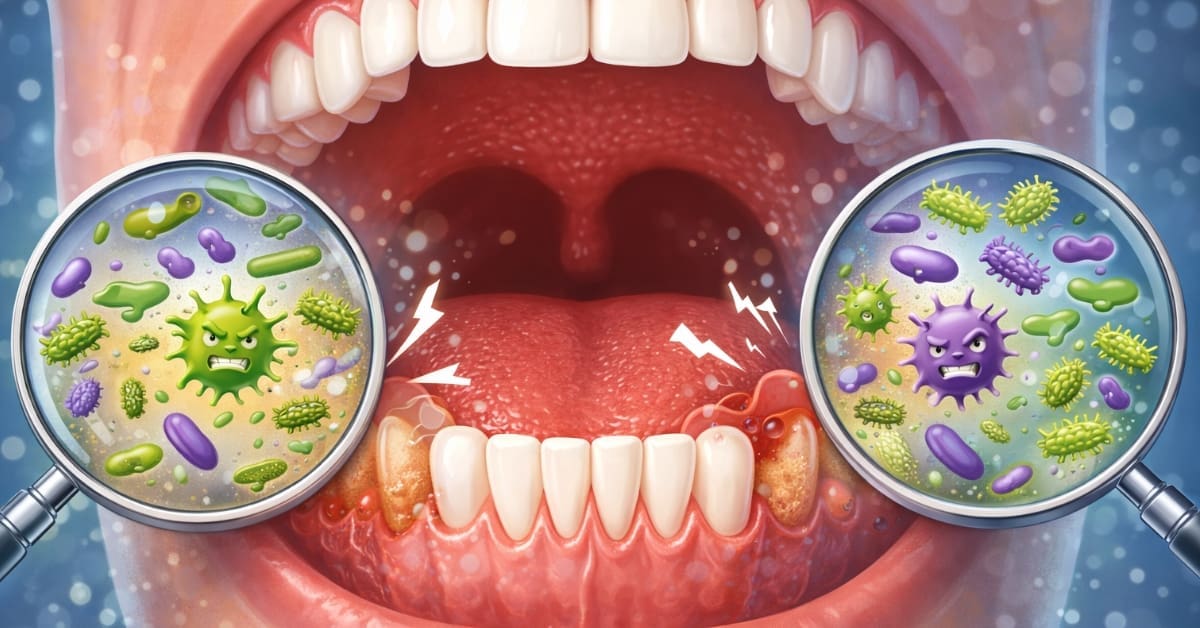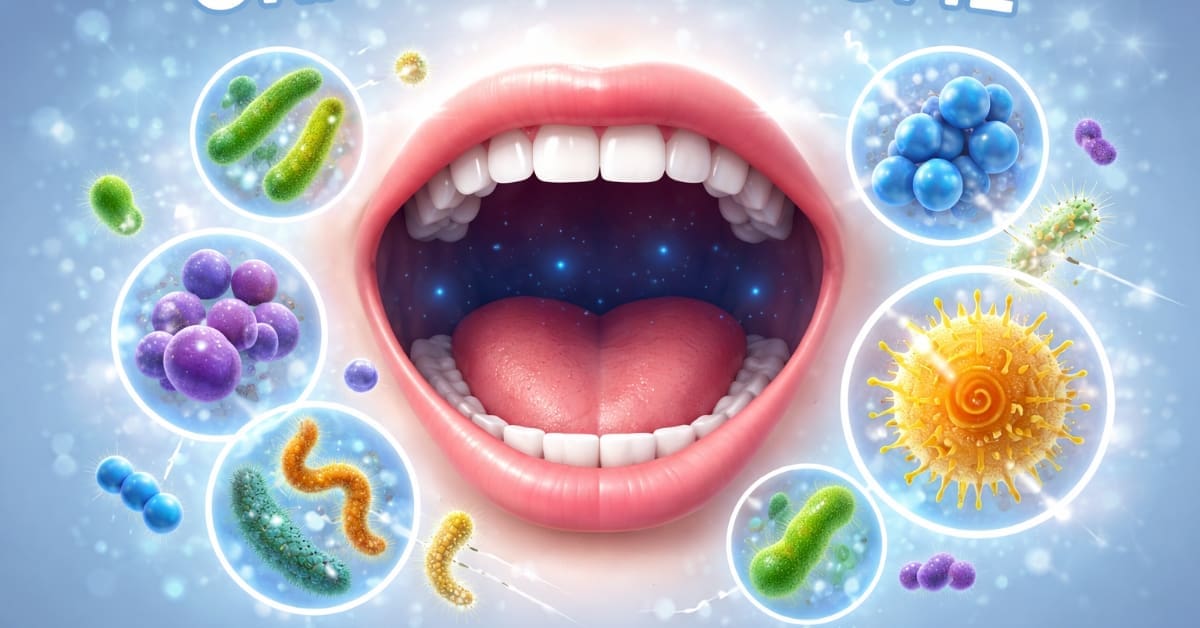Guide to Teeth Brushing and Flossing
It’s easy to overlook the importance of proper oral hygiene in the hustle and bustle of our daily lives. Yet, maintaining good oral health goes far beyond just a bright smile. It’s a cornerstone of overall well-being, impacting everything from confidence to systemic health. Welcome to our comprehensive guide on proper teeth brushing and flossing techniques, where we’ll delve into the intricacies of oral care, empowering you to take charge of your dental health.
Importance of Oral Hygiene: Why It Matters
Let’s understand why oral hygiene is not just about having pearly whites. Our mouths are bustling ecosystems teeming with bacteria, some of which are beneficial while others are harmful. When plaque—a sticky film of bacteria—builds up on our teeth, it can lead to tooth decay, gum disease, and even bad breath.
But here’s the kicker: these oral health issues aren’t just confined to the mouth. Research has shown strong links between poor oral health and systemic conditions like heart disease, diabetes, and respiratory infections. By prioritizing oral hygiene, we’re safeguarding our smiles and investing in our overall health and well-being.
Anatomy of the Teeth and Gums: The Foundation of Oral Care
To truly grasp the importance of proper oral care, it’s essential to understand the anatomy of our teeth and gums. Picture this: our teeth are like tiny, mineralized structures anchored in our gums’ pink, fleshy canvas. Each tooth comprises different layers—the enamel, dentin, and pulp—working together to support chewing, speaking, and maintaining facial structure. Surrounding these pearls are our gums, which provide a protective barrier against bacteria and help hold our teeth firmly in place. Understanding this intricate architecture lays the groundwork for effective oral hygiene practices.
Choosing the Right Toothbrush and Toothpaste: Your Personalized Arsenal
Now that we’ve laid the foundation, let’s talk about tools of the trade. Regarding toothbrushes, the age-old debate between manual and electric rages on. While manual toothbrushes get the job done, electric toothbrushes offer additional perks like built-in timers and oscillating brush heads, making them ideal for those seeking a thorough clean with minimal effort.
For teeth brushing, the options for toothpaste are seemingly endless—fluoride for cavity protection, sensitivity formulas for tender teeth, and whitening variants for that extra sparkle. When selecting toothpaste, we recommend consulting your dentist to address your needs and concerns.
Techniques for Brushing Teeth: Mastering the Art
Ah, the cornerstone of oral care—the act of teeth brushing. But are we doing it right? Let’s break it down. First, angle your brush at a 45-degree angle towards the gum line to target plaque buildup. Then, gently and circularly brush each tooth surface, paying particular attention to the front, back, and chewing surfaces. Aim for two minutes twice a day to ensure a thorough clean. And don’t forget the tongue! A quick swipe with your toothbrush helps banish bacteria and keep bad breath at bay.
Frequency of Brushing: Timing is Key
Now that we’ve nailed down the teeth brushing technique, let’s discuss timing. We recommend brushing your teeth twice daily—once in the morning to kick-start your day with freshness and again before bed to rid your mouth of the day’s buildup. However, a quick brush or rinse can help mitigate the damage and maintain oral health if you indulge in sugary snacks or acidic beverages throughout the day.
Flossing Tools and Techniques: Navigating the Maze
Ah, flossing—the often-overlooked step in oral care. But fear not; we’re here to demystify the art of flossing. Whether you prefer traditional floss, convenient floss picks, or the high-tech allure of water flossers, the goal remains to remove plaque and food debris from between teeth and along the gum line. When flossing, use a gentle sawing motion, curving the floss around each tooth in a C-shape to ensure thorough cleaning without damaging delicate gum tissue.

Interdental Cleaning: Going the Extra Mile
But wait, there’s more! In addition to traditional flossing, interdental teeth brushing and water flossing offer an extra layer of cleaning for those hard-to-reach spaces between teeth. These handy tools can be especially beneficial for individuals with braces, dental implants, or tight dental work, ensuring every nook and cranny remains plaque-free.
Tips for Proper Oral Care: Going Above and Beyond
While proper teeth brushing and flossing form the cornerstone of oral care, there are additional steps we can take to elevate our dental hygiene game. Incorporating mouthwash into your routine helps rinse away lingering bacteria and freshen breath, while tongue scrapers banish odor-causing bacteria lurking on the tongue’s surface. And let’s not forget the golden rule—avoid harmful habits like smoking, which not only causes teeth discoloration but also elevates the likelihood of gum disease and oral cancer.
Common Mistakes to Avoid: Pitfalls of Oral Care
Even individuals with the best intentions can become victims of common oral care mistakes. From aggressive brushing that wears down enamel to neglecting the back molars, these missteps can compromise oral health over time. By adopting gentle teeth brushing techniques, using the right tools for the job, and paying equal attention to all areas of the mouth, we can sidestep these pitfalls and maintain a healthy smile for years.
Routine Dental Check-ups: The Importance of Professional Care
Finally, regular dental examinations are unquestionably essential for maintaining optimal oral health. During these visits, our trusted dental professionals can identify initial indicators of tooth decay, gum ailments, or other oral health issues and intervene before they escalate into major problems. Additionally, professional cleanings help remove stubborn plaque and tartar buildup, leaving our smiles fresh, bright, and healthy.
Special Considerations: Customizing Teeth Brushing Care to Your Needs
We understand that one size doesn’t fit all in oral care. Individuals with braces, dental implants, or sensitive teeth require specialized attention and tailored advice to meet their unique needs. By working closely with your dentist and following their recommendations, you can confidently navigate these challenges and maintain optimal oral health.
Age-specific Oral Care: From Cradle to Golden Years

And let’s not forget our little ones and seniors—two demographics with unique dental needs. From teaching toddlers proper teeth brushing techniques to addressing age-related concerns like dry mouth or tooth loss, age-specific oral care plays a crucial role in lifelong dental health. By instilling good habits early and adapting care as we age, we can enjoy healthy smiles at every stage of life.
Smile Bright with Suburban Essex Dental: Your Path to Oral Wellness!
Proper teeth brushing and flossing techniques are more than just mundane tasks; they’re acts of self-care that pave the way for a lifetime of smiles. By understanding the importance of oral hygiene, mastering the techniques, and embracing tailored care, we can begin a voyage toward achieving the pinnacle of oral well-being. So, let’s commit to our smiles—brush, floss, and smile bright!
Ready to take the next step towards a healthier smile? Schedule your next dental check-up with Suburban Essex Dental in West Orange, New Jersey, and let’s work together to create a personalized oral care plan customized to your unique needs.





